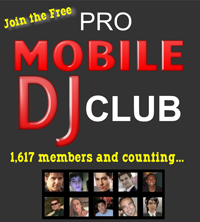by Dave Austin
 It seems to be the latest buzz – a thing called “cloud computing.” However, there seems to be many different definitions of exactly what it is.
It seems to be the latest buzz – a thing called “cloud computing.” However, there seems to be many different definitions of exactly what it is.
Some define cloud computing as little more than an updated version of utility computing – virtual servers available over the internet. Others go in an extreme and different direction, arguing that anything outside the firewall is “in the cloud.” Small wonder that people are confused.
However, cloud computing may become less nebulous when you think about what’s always needed: an increase in capacity or added capabilities without investing in new equipment, software and a long learning curve. Cloud computing encompasses any subscription-based or pay-per-use service that is available in real time over the internet.
Cloud’s Usefulness To Us
At this point, cloud computing is in its infancy with a group of small and large providers delivering a wide range of services ranging from apps to storage to spam filtering. We could get into a lot of techno-geek-speak here, but let’s try to consider the cloud in terms of its usefulness to those of us in the DJ/music business.
Amazon has launched two new services, Cloud Drive and Cloud Player. Clients in the U.S. can get free online storage to use for whatever they choose, but are strongly encouraged to upload their music libraries. Once the music is stored on the remote drive, users can use their Cloud Players Android or Web apps to stream the music to any compatible device or browser even if the files have not been synced there.
Amazon created an uproar in March with the launch its new Cloud Player without securing any additional music licenses. Amazon compares its Cloud Player to Microsoft’s Windows Media Player, and declares that it doesn’t need any additional licenses, but, as we can imagine, the music industry has very different thoughts on that.
Amazon argues that Cloud Drive and Cloud Player are merely services which allow the user to upload and play their own music. After all, licenses should not be necessary for users to play their own music. The law has yet to deal with this issue. Record companies fear digital lockers like the plague, but at the same time, are drooling at the prospect of huge additional revenues from streaming services. Record labels expressed shock at Amazon’s announcement, but have since agreed to talks.
While not having made any announcement at this point, Apple and Google are expected to offer similar services in the near future. The word is that Google’s music service will provide both downloads and streams to go with its digital locker. The service would also scan your computer and automatically add tracks to which Googe has licenses.
Apple is believed to currently by in negotiations with the big four labels- Sony Music, Universal Music Group (UMG), Warner Music Group (WMG) and EMI – to allow unlimited music downloads and streams to iOS devices as part of reworking of MobileMe.
From our standpoint, the cloud offers a convenient place to store music and data files and have access to them when and where we want them. Another advantage is having a safe, worry-free backup for your data.
Is Now The Time to Dive In?
Will the cloud be a useful tool for DJs? Although it could be in some situations, I believe we should step cautiously and allow time for the licensing issues to be settled, and once done, we’ll doubtless see a new generation of devices.
Dave Austin – Music Professor
 Dave Austin began his career at age 13 at a small, hometown radio station. He went on to graduate from the University of Southern Mississippi with a Bachelor’s degree in broadcasting.
Dave Austin began his career at age 13 at a small, hometown radio station. He went on to graduate from the University of Southern Mississippi with a Bachelor’s degree in broadcasting.
Since that time, Dave has been a mobile and radio DJ, radio station Program Director, and a TV news reporter and anchorman. He has also done voiceover work for documentaries and commercials.
In 1986 Dave’s longtime passion for music prompted him to start “Southern Celebrations DJs,” a multi-system mobile entertainment company serving clients in Tennessee, Northern Georgia and Northern Alabama.
You can email him c/o [email protected] or visit his website – Moonlight Mobile Music.
![]() Tweet This Post
Tweet This Post










